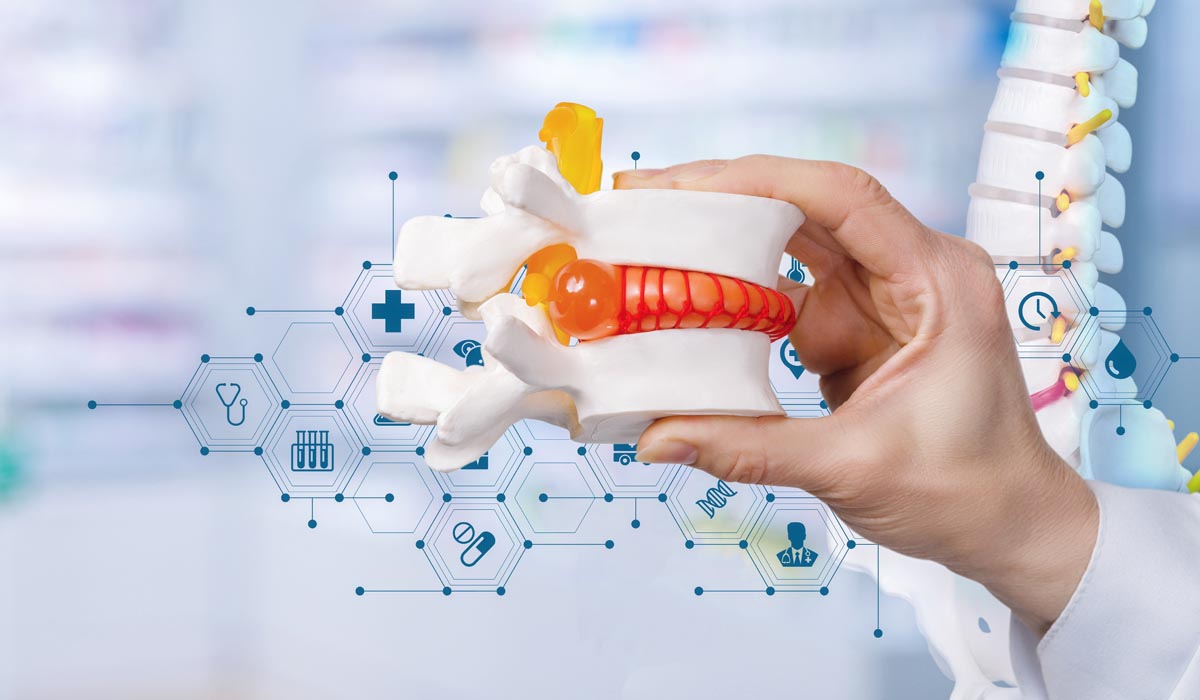✨Book online and enjoy a 5% discount on your first consultation
Home » Chiropractic Services » Herniated Disc

Medical Service Name – Herniated Disc
A herniated disc, also referred to as bulged, ruptured, or slipped disc, is a fragment of the disc nucleus. The disc gets impelled out of the annulus. Then it enters the spinal canal via a rupture or tears present in the annulus. A herniated disc can happen in any possible area of the spine. It is the displacement that presses the disc on spinal nerves and causes pain.
Possible Causes
A severe injury or single excessive strain can cause a herniated disc. Old age can also be the reason for this disc material degeneration. The weakening of ligaments can also be listed as one of the reasons. As the deterioration evolves, a twisting movement or a minor strain can lead a disc to rupture.
Risk Factors
Sign & Symptoms
There are no such common symptoms of herniated disc apart from the pain. It depends upon the size and position of the rupture. Generally, if the disc doesn’t pressurize on any nerve, the patient sometimes spots no pain or a low backache. There could be numbness or weakness in body areas from where the nerve travels for the opposite cases.
There are two types of cases and their particular symptoms:
Diagnosis
There are some standard testing and diagnosis done to recognize the severity of the herniated disc. Below is the list of testing performed before deciding how to treat the issue:
Treatment Options at 7DMC
Initially, the treatment for these types of cases is non-surgical and conservative. It is generally treated with non-steroidal anti-inflammatory medication. An epidural steroid injection is also exercised with a spinal needle under X-ray guidance. There are several therapies included for in-depth evaluation. This involves ultrasound, gentle massage, stretching exercises, pelvic traction, electrical muscle stimulation, and ice and heat therapy.
We use an amalgamation of non-surgical and surgical methods to reduce the pain. Depending on the study on the patient’s conditions, our experts suggest the best way to deal with the issue. Surgeries are mainly performed in severe cases. Our motive is to resolve the degenerative disc disease of the spine naturally and effectively.
Many believe the reduction of pain is the final stage. But there is a lot more to take care of after the treatment. Our experts keep a constant record of your progress and provide you with precautions you need to follow.
We provide the best chiropractic adjustment in Dubai, benefitting your spinal health without the complications of surgery.
Treatments for herniated discs in the lumbar spine include:
A herniated disc is a common spinal condition that usually responds well to non-invasive treatments such as modest exercise or over-the-counter pain relievers. However, certain ruptured disc symptoms necessitate a doctor’s visit to avoid serious—and perhaps permanent nerve disorders.
Many people with bulging and herniated discs choose chiropractic therapy since it is non-invasive and does not entail medicines or injections. Once you’ve received your diagnosis, you and your chiropractor may collaborate to select the best course of action for your ailment.
Near Dubai Miracle Garden,
Diamond Business centre A,
1st Floor,
Arjan, AI Barsha,
Dubai.
WhatsApp us